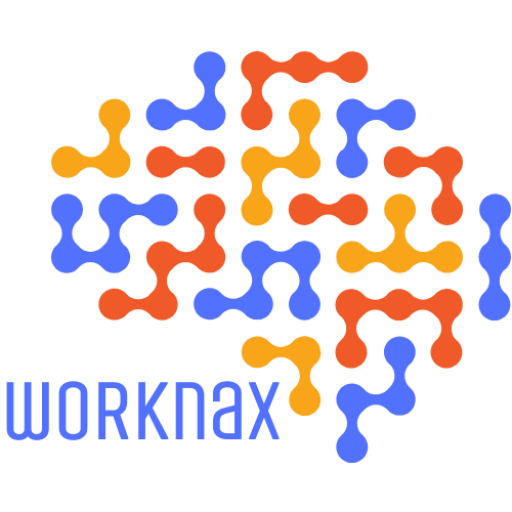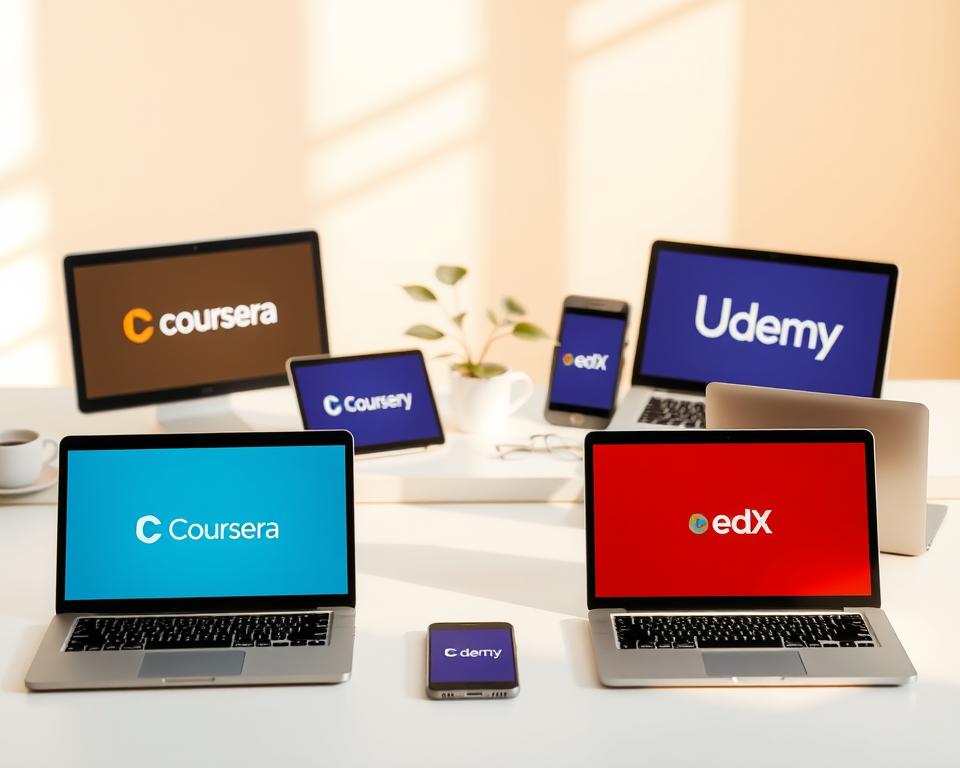Anúncios
Na era digital atual, a programação se tornou uma habilidade essencial, abrindo uma infinidade de oportunidades em diversos setores. Seja para uma mudança significativa de carreira ou simplesmente para um novo hobby, o cenário da educação em programação se expandiu drasticamente, tornando-a mais acessível do que nunca. Há uma gama diversificada de opções disponíveis para quem deseja aprender a programar, mas com tantas opções, pode ser realmente desafiador encontrar o curso certo que se alinhe às suas necessidades e preferências específicas.
Este post de blog se esforça para guiá-lo pelo panorama atual das opções de educação em programação mais populares, voltadas para iniciantes. Uma abordagem informada pode ajudá-lo a tomar decisões acertadas sobre qual curso de programação escolher em sua jornada de aprendizado. Escolher o programa de programação certo exige a compreensão do seu estilo de aprendizagem, pois as preferências individuais desempenham um papel significativo no sucesso educacional.
Alguns alunos prosperam em ambientes estruturados, beneficiando-se de um roteiro claro e instruções guiadas. Por outro lado, outros preferem uma abordagem mais individualizada, que permita flexibilidade e exploração pessoal no mundo da programação. Por exemplo, plataformas como a Codecademy oferecem aulas de programação interativas que permitem que você progrida no seu próprio ritmo, fornecendo feedback imediato ao longo do caminho. Este método é particularmente vantajoso para iniciantes, que podem frequentemente encontrar desafios e precisar de orientação extra ao lidar com conceitos básicos de programação.
Outra plataforma notável é a Coursera, que oferece uma ampla variedade de cursos de programação de universidades respeitadas. Esses cursos são meticulosamente elaborados não apenas para transmitir conhecimento de diversas linguagens de programação, mas também para fornecer insights essenciais sobre conceitos mais amplos da engenharia de software. Aprender com especialistas na área pode aprimorar significativamente sua proficiência em programação, promovendo uma compreensão mais profunda do assunto, tornando-se uma escolha produtiva para iniciantes ávidos por uma imersão completa nos fundamentos da programação.
A edX merece destaque como uma plataforma confiável que colabora com universidades e organizações de prestígio para oferecer educação em programação de alta qualidade. Muitos de seus cursos incluem projetos práticos, que permitem aos alunos aplicar diretamente o que aprenderam em cenários práticos. Para quem está começando, essa experiência prática é inestimável, pois ajuda a construir confiança e, ao mesmo tempo, aprimora suas habilidades gerais. Além disso, a possibilidade de apresentar projetos concluídos em um portfólio profissional é um aspecto vantajoso ao navegar por candidaturas de emprego no setor de tecnologia.
Se você tem inclinação para o aprendizado visual, plataformas como Udemy e Pluralsight podem ser interessantes. Elas oferecem uma rica variedade de tutoriais em vídeo em diversas linguagens e frameworks de programação, permitindo que você selecione cursos que se alinhem perfeitamente aos seus interesses e aspirações de carreira. Essa abundância pode ser particularmente atraente para iniciantes ansiosos por explorar os vastos domínios da programação, abrangendo desde desenvolvimento web até ciência de dados, capacitando-os a se estabelecer em uma especialidade que ressoe com suas paixões.
Para aqueles que buscam uma experiência de aprendizagem mais colaborativa e voltada para a comunidade, os bootcamps de programação oferecem uma opção imersiva. Esses programas intensivos, como o General Assembly ou o Le Wagon, são projetados para envolver profundamente os participantes na programação por várias semanas ou meses. Eles ensinam não apenas as habilidades fundamentais necessárias para o sucesso na área de tecnologia, mas também conhecimentos baseados em projetos que podem impulsionar significativamente a experiência de aprendizagem de um iniciante. A camaradagem construída durante esses bootcamps pode aumentar substancialmente a motivação, proporcionando conexões valiosas com colegas que compartilham interesses e ambições semelhantes.
Nos últimos anos, a ênfase na educação em programação se estendeu a públicos mais jovens, refletindo a compreensão da importância crucial das habilidades de programação no mercado de trabalho em constante evolução. Plataformas como Tynker e Code.org atendem especificamente a crianças e adolescentes, implementando aulas gamificadas que tornam o processo de aprendizagem envolvente e agradável. Essa tendência destaca o crescente reconhecimento da necessidade de exposição precoce à programação, equipando a próxima geração com as habilidades essenciais para o sucesso futuro em um mundo centrado na tecnologia.
Além disso, o surgimento de aplicativos de codificação para dispositivos móveis tornou a jornada de aprendizado de programação mais conveniente do que nunca. Aplicativos como SoloLearn e Mimo oferecem aulas concisas e concisas, fáceis de encaixar em agendas lotadas. Essa abordagem permite que iniciantes absorvam conceitos de codificação durante breves momentos de tempo livre, como deslocamentos ou pausas, transformando momentos de ócio em experiências produtivas de aprendizado. A conveniência proporcionada pela tecnologia móvel promove um ambiente ideal para que iniciantes desenvolvam gradualmente sua expertise em codificação.
Plataformas de mídia social, especialmente Twitter e LinkedIn, tornaram-se fundamentais na formação da comunidade de programação. Ao seguir influenciadores, educadores e profissionais do setor nesses espaços, iniciantes podem se manter atualizados com as últimas tendências e recursos em educação em programação. O envolvimento ativo com essas comunidades online pode fornecer suporte e incentivo inestimáveis aos novos alunos enquanto eles navegam pelos estágios iniciais de sua jornada de programação.
À medida que você se aprofunda em sua formação em programação, é crucial aprimorar uma linguagem de programação específica que se alinhe aos seus objetivos. Python, por exemplo, continua sendo uma das linguagens mais recomendadas para iniciantes devido à sua simplicidade e versatilidade. Suas aplicações abrangem desde desenvolvimento web até análise de dados, oferecendo uma infinidade de caminhos de carreira para quem adquire proficiência nessa linguagem popular.
JavaScript, outra linguagem altamente recomendada para iniciantes, é particularmente relevante para quem se interessa por desenvolvimento web. Responsáveis pela maioria dos sites interativos, o JavaScript tornou-se indispensável no cenário digital atual. Adquirir habilidades nessa linguagem capacita os iniciantes a criar aplicativos web dinâmicos, posicionando-os para causar um impacto significativo na indústria de tecnologia ao embarcarem em suas carreiras de programação.
Para quem se interessa pelo desenvolvimento de aplicativos mobile, linguagens como Swift para iOS e Kotlin para Android representam excelentes opções. Essas linguagens de programação atendem especificamente a plataformas mobile e estabelecem uma base sólida para quem aspira a ingressar no dinâmico campo do desenvolvimento mobile. Com a crescente demanda por aplicativos mobile refletindo as tendências tecnológicas atuais, o domínio dessas linguagens pode, de fato, abrir portas para oportunidades de carreira promissoras no setor.
Depois de identificar um curso de programação adequado e uma linguagem de programação para focar, a consistência na prática é vital para dominar as habilidades de programação. Desenvolver pequenos projetos serve para reforçar o que você aprendeu, além de fornecer evidências tangíveis de suas habilidades. Projetos como sites pessoais, jogos simples ou aplicativos podem aumentar sua confiança e contribuir positivamente para seu portfólio profissional.
Participar de desafios de programação e hackathons representa outra estratégia eficaz para aprimorar ainda mais suas habilidades de programação. Sites como HackerRank e LeetCode apresentam uma infinidade de problemas de programação projetados para aprimorar as habilidades de resolução de problemas. Ao trabalhar com cenários de programação do mundo real, você se preparará para entrevistas de emprego e fortalecerá suas habilidades práticas, todas altamente valorizadas por potenciais empregadores no cenário da tecnologia.
O networking tem se tornado cada vez mais importante no mercado de trabalho atual, especialmente para iniciantes em programação. Envolver-se em comunidades de programação online ou participar de encontros locais de tecnologia permitirá que você crie conexões valiosas dentro do setor. Essas interações não apenas o expõem a potenciais oportunidades de emprego, mas também proporcionam experiências de networking que inspiram mentoria e o expõem à orientação de profissionais experientes na área.
Além das habilidades técnicas, cultivar habilidades interpessoais é igualmente crucial em sua jornada de programação. Qualidades como comunicação eficaz e trabalho em equipe desempenham um papel vital em projetos de programação colaborativa, especialmente em ambientes de trabalho que exigem cooperação entre os membros da equipe. Desenvolver essas habilidades interpessoais, juntamente com seu conhecimento técnico, aprimorará seu perfil, tornando-o um candidato mais completo em um mercado de trabalho competitivo.
Além disso, é essencial manter-se atualizado sobre as últimas tendências de codificação e tecnologias emergentes, visto que o cenário tecnológico está em constante evolução. Plataformas como o GitHub servem como recursos valiosos que destacam projetos impactantes e refletem as tendências atuais do setor. Ao explorar projetos de código aberto no GitHub, iniciantes podem obter insights de desenvolvedores experientes, ao mesmo tempo em que contribuem para iniciativas significativas que impulsionam a inovação.
Em resumo, selecionar os melhores cursos de programação para iniciantes exige uma compreensão abrangente do seu estilo de aprendizagem e interesses específicos, enquanto explora as inúmeras plataformas e linguagens de programação disponíveis. De diversos cursos online a bootcamps de programação e aplicativos móveis inovadores, há uma abundância de recursos disponíveis para inspirar e apoiar seus esforços de programação.
Prática consistente, engajamento ativo em projetos do mundo real e envolvimento com a comunidade são estratégias fundamentais para desenvolver suas habilidades de programação. Lembre-se sempre de se conectar com a comunidade de programação mais ampla para se manter informado, motivado e inspirado ao longo de sua jornada. Neste cenário tecnológico em constante evolução, a iniciativa de aprender a programar, sem dúvida, o levará a caminhos empolgantes e a uma profunda realização profissional. Abrace a jornada que está por vir e boa programação!



